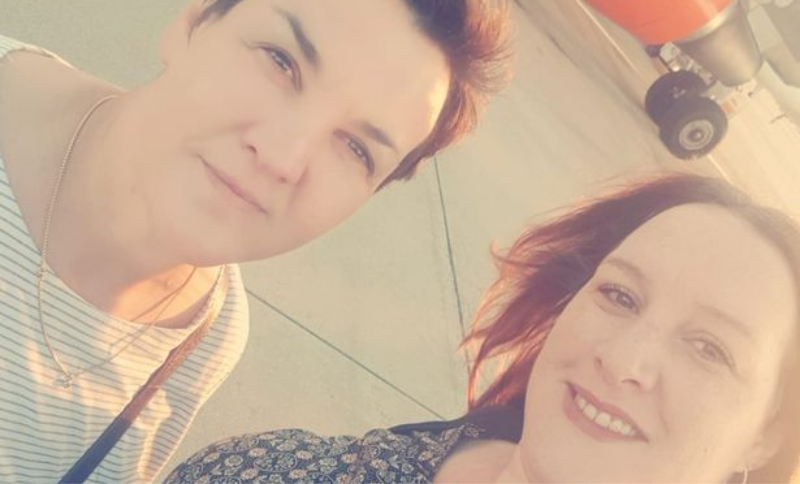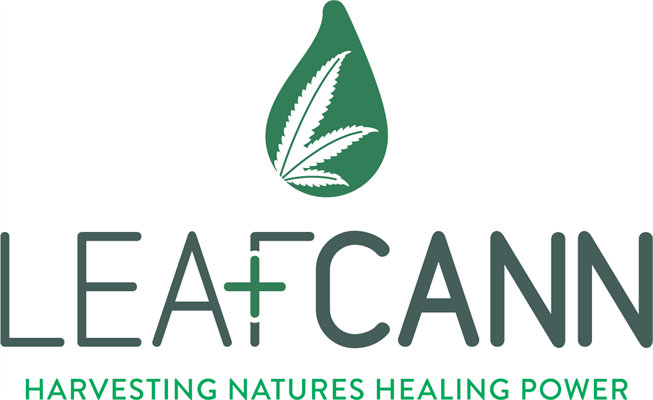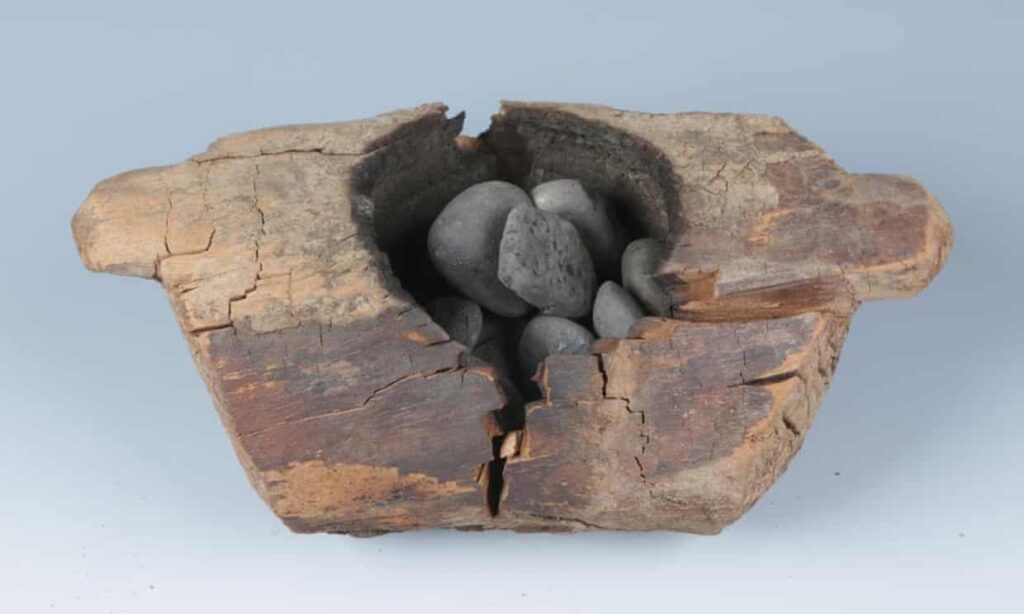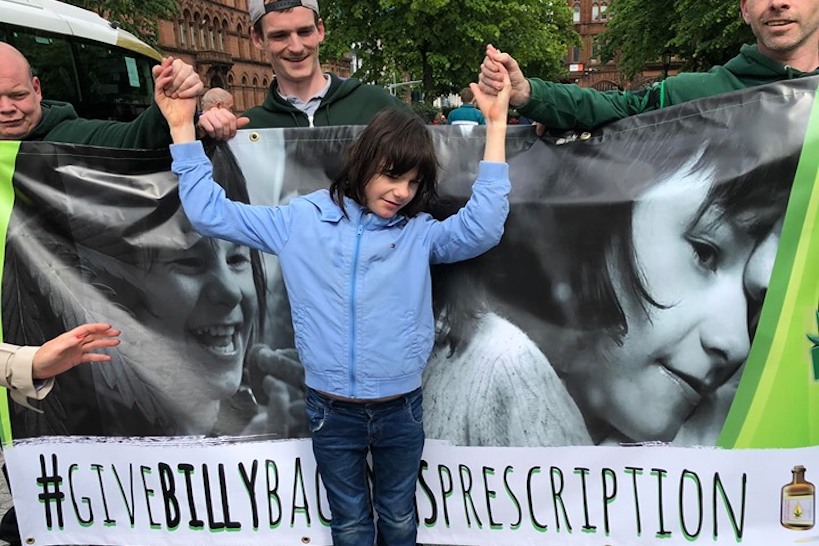Caldwells launch legal challenge against NHS
Charlotte Caldwell has launched a legal challenge against the NHS and the Department of Health in Northern Ireland over access to her teenage epileptic son Billy’s cannabis-based medicine.
The papers have been lodged at the High Court in Belfast to contest the Health and Social Care Northern Ireland’s (HSCNI) decision to block GPs from prescribing the drug.
Billy’s epilepsy causes him to have hundreds of seizures a year but after the 13-year-old began using medicinal cannabis oil prescribed in the US, he was able to go for months at a time without one.
Charlotte said the move had been made “in desperation and [with] nowhere else to turn”.
“We have exhausted all other options and we are ourselves exhausted,” Ms Caldwell wrote in a post on Facebook. “This is a road we did not want to take and tried every way we could to avoid it. Sadly for Billy he was left with no choice.”
Billy did get the UK’s first medicinal cannabis prescription but only under a special temporary licence from the Home Office before the 1 November law change that put prescribing powers solely in the hands of NHS specialists, who have set impossible restrictions. He has been receiving prescriptions privately from a consultant based in England but this requires his family to regularly fly over from their home in Castlederg.
Charlotte found that their local GP was willing to prescribe the medicine under the direction of Billy’s consultant, a common practice in other areas of medicine known as a “shared care arrangement”.
However HSCNI’s interpretation of the law is that GPs cannot prescribe it in this way, and the legal challenge aims to clarify this point in law.
“The whole thrust of it is to localise Billy’s care because it’s unreasonable to expect he and Charlotte to keep travelling back and forth to England to get the prescription,” Anurag Deb, a legal assistant with KRW Law told The Independent.
“It’s a huge strain, with the stress of travel, and financial arrangements of having to stay over and have the prescription filled privately. All of those considerations mean we are really pushing to get Billy’s care localised to his own GP.”
Medicine seized at border returned to Teegan Appleby

Teegan Appleby’s medicine, which was seized at Gatwick Airport on 6 June, has been returned to her. Her mother Emma, who brought it back from the Netherlands, said the experience had left her “exhausted and drained”.
The three-month supply was seized when she landed at Southend Airport in Essex and she and her partner Lee had to obtain a prescription from a specialist UK consultant to get it back.
Emma said: “Since being administered with THC- bearing medical cannabis, Teagan’s seizure rate has plummeted from as many as 300 seizures a day to now maybe just a couple a day, and only when she is sleeping.
“But I am being forced to raise thousands of pounds to pay privately for it, and to pay hundreds of pounds more to go abroad to actually get it and then fight all the bureaucracy to get it through customs.
“I plead from the bottom of my heart to [health secretary] Matt Hancock and the NHS to sort this out. For the love of God, parents like me just can’t take much more either financially or emotionally.
“We are at breaking point and no-one seems to be getting a grip on this.”
Talks for first legal cannabis farm in Scotland underway

Australian company LeafCann has held talks with a local authority about building the first legal cannabis farm in Scotland, according to the Herald on Sunday.
LeafCann, which was recently granted a license to manufacture medicinal cannabis, has been in discussions with North Ayrshire council about identifying potential sites in Irvine.
A council spokesperson said: “We are aware of interest from LeafCann and we’ve had initial discussions with them. There is nothing imminent or close to being agreed.”
Monica Lennon, Scottish Labour’s health spokesperson, welcomed the news: “It’s encouraging to hear that talks are underway that could lead to the improved availability of medicinal cannabis within Scotland’s NHS.”
Oldest evidence of high THC cannabis smoking found in China

Chinese archaeologists have unearthed scorched wooden incense burners at an ancient burial ground in the mountains of western China that contain the oldest “unambiguous” evidence of cannabis smoking yet found.
“Residues of high potency cannabis found in the burners, and on charred pebbles placed inside them, suggest that funeral rites at the 2,500-year-old Jirzankal cemetery in the Pamir mountains may have been rather hazy affairs,” reports The Guardian.
“Scientists believe the stones were heated in a fire before being transferred to the wooden braziers and covered with cannabis, which duly billowed psychoactive smoke. With music as an accompaniment, the heady fumes may have prompted those present to attempt to commune with nature, spirits or the dead.
“Researchers have found remnants of cannabis at ancient sites in central Asia before, but the latest discovery points to the intentional use of plants with high levels of the active compound, THC, and to cannabis being inhaled rather than ingested.”
Robert Spengler, of the Max Planck Institute for the Science of Human History, said: “There has been a longstanding debate over the origins of cannabis smoking, there are many speculative claims of ancient use. This study provides the earliest unambiguous evidence for both elevated chemical production in the plant and also for the burning of the plant as a drug.”




